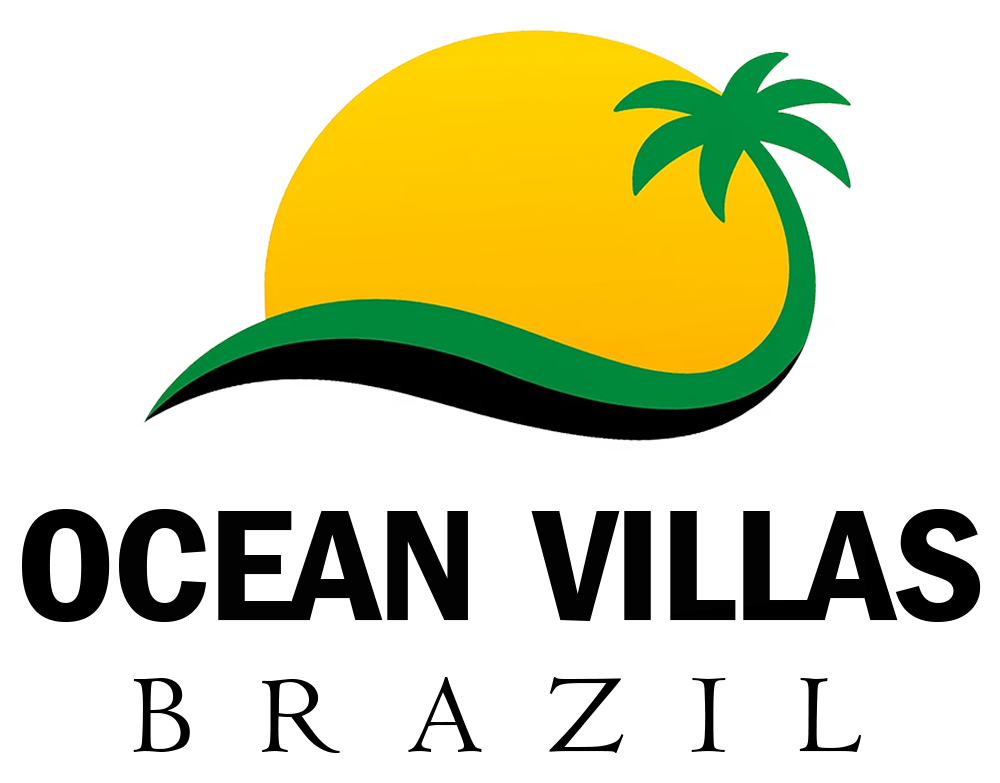Living in Brazil: What Nobody Tells You About Paradise Life
Brazil’s paradise extends way beyond its picture-perfect postcards. Most people know about the epic Carnival celebrations and pristine beaches. But few realize that the Amazon rainforest houses 1 in 10 of the world’s known species across its 1.4 billion acres. Life in Brazil comes with its challenges, yet the country values relationships over possessions. The cost of living stays much lower than in the US and Europe.
The country’s rich landscape features everything from bustling city skylines to breathtaking coastal regions, wetlands, and rainforests. Brazil stands out not just for its natural beauty or its position as the world’s top producer of citrus fruits. The vibrant culture makes public displays of affection normal, and beach life revolves around socializing. Let us take you beyond tourist brochures to show you what paradise life really means in this remarkable country.
The beauty that draws you in
Brazil’s natural beauty feels almost surreal to experience firsthand. The moment you step outside, a sensory paradise surrounds you, and it’s easy to understand why many expatriates call this country their permanent home.
Brazil’s natural wonders and biodiversity
Brazil ranks among the most biodiverse nations on earth and houses approximately 20% of all known species on the planet. My walks through the Amazon rainforest revealed this incredible variety—from colorful macaws to elusive jaguars. The country has the most known species of plants (55,000), freshwater fish (3,000), and mammals (over 689).
The Pantanal, the world’s largest wetland ecosystem, sits beyond the Amazon and makes wildlife viewing remarkably available. The magnificent Iguazu Falls, with its 247 individual waterfalls, creates a thunderous spectacle as it crashes into the gorge below. The Meeting of Waters shows nature’s peculiar magic as the dark Rio Negro and sandy-colored Amazon flow side by side without mixing for 6 kilometers.
What is Brazil famous for in the world?
Brazil’s reputation goes well beyond its carnival atmosphere. The Amazon River basin lies mostly within Brazil’s borders, featuring the world’s largest river system and most extensive virgin rainforest. The country also includes 15 UNESCO World Heritage Cultural Sites and 5 UNESCO World Heritage Natural Sites.
The nation’s coastline stretches 4,655 miles—the longest in the world—with countless golden beaches that symbolize the Brazilian lifestyle. Brazil stands as a megadiverse country with exceptional natural treasures that continue to amaze visitors and residents alike.
The beach lifestyle and outdoor living
Brazil’s architecture perfectly complements its natural surroundings. Modern homes feature open floor plans, expansive glass walls, and courtyards that seamlessly connect indoor and outdoor spaces. Life here means adopting a lifestyle where indoor-outdoor flow becomes natural.
The beach culture represents more than recreation—it’s a way of life. Locals pack light with just the essentials: a “kanga” (sarong) instead of towels and minimal cash for vendors selling everything from coconut water to chairs. Beach vendors roam the sand constantly, offering refreshments, accessories, and snacks. This makes the beach experience comfortable and uniquely Brazilian.
The cost of living: more affordable than you think
Brazil offers a paradise lifestyle at prices that will make your money go further. You can enjoy a high quality of life without breaking the bank.
Living cost in Brazil vs. US and Europe
The numbers tell a clear story—consumer prices in the United States are 97.8% higher than in Brazil. Adding rent to the equation pushes this difference to 157.1%. From a practical point of view, a family of four needs about $2,059 monthly in Brazil compared to $4,305 in the US. Your savings or retirement income stretches much further here. The rent difference stands out dramatically—U.S. prices soar 420.1% above Brazilian equivalents!
Affordable real estate and rent
Brazilian property market values are exceptional. Property sales in Brazil hover around $76,257 as the median price. A one-bedroom apartment in city centers costs just 1,848 R$ ($327) monthly. The market welcomes foreigners with open arms—you can buy urban land, coastal properties, or condos without restrictions.
Cost of food, transport, and services
Daily expenses remain surprisingly low in Brazil. You’ll pay around 30 R$ ($5.31) for a meal at a casual restaurant, while the same meal costs 112.91 R$ ($20) in the United States. Grocery shopping won’t break the bank—a person needs about 986 R$ ($175) monthly for food. Getting around is budget-friendly too, with monthly transit passes costing around 228 R$ ($40).
Free public healthcare: what to expect
Brazil’s Sistema Único de Saúde (SUS) stands as a hidden gem that provides free, universal healthcare access. The system welcomes all residents and visitors, even those without documentation, and requires no application process. While wait times might exceed private care options, 75% of Brazilian citizens rely exclusively on this system. The coverage includes everything from preventive services and primary care to hospital stays. You even get free medication for HIV/AIDS, hypertension, diabetes, and asthma.
The cultural surprises you won’t read in travel guides
Brazil’s culture runs deeper than its picture-perfect postcards suggest. The everyday cultural details leave the most memorable impressions, and no guidebook can truly prepare you for this experience.
Living in Brazil as a foreigner: the real experience
Local warmth quickly melts away your original culture shock when you arrive in Brazil. Brazilian people welcome outsiders with genuine hospitality that goes beyond simple politeness – you’ll find yourself invited to family events almost right away. The openness means personal boundaries work substantially differently here. Your colleagues might kiss your cheeks or ask direct questions about your salary or relationship status.
Language barriers and communication challenges
Portuguese dominates daily life, though tourist areas don’t always require fluency. Learning simple phrases will substantially improve your experience. Brazilian people love when you try to speak their language and respond with patience and encouragement. They communicate with their whole bodies, use animated gestures, and stand closer during conversations than most foreigners expect.
The role of family and community in daily life
Brazilian family connections run exceptionally deep. Multiple generations often live together or nearby. Sunday family lunches represent sacred traditions that stretch for hours. This community-centered lifestyle extends to neighbors who become like extended family members. The Brazilian concept of “jeitinho” (finding creative solutions to problems) reflects the collective problem-solving approach that pervades society.
Public affection and social norms
People display physical affection openly – couples embrace publicly, friends walk arm-in-arm, and greeting kisses come standard. Time flows differently here. People treat appointments as guidelines rather than strict commitments. Arriving 15-30 minutes late to social gatherings feels completely normal.
How Brazilians treat children and elders
Brazilian society welcomes children everywhere, from restaurants to social gatherings at any hour. Elders receive notable respect and care, typically living with adult children instead of retirement communities. People of all ages interact regularly through this intergenerational mixing. This promotes a unique community spirit that many foreigners find refreshingly different from their home countries.
The not-so-paradise parts of paradise
Life in Brazil is a mix of paradise and challenges. The country’s extraordinary beauty and rich culture come with their fair share of thorns.
Bureaucracy and paperwork frustrations
Brazilian bureaucracy will test your patience to the limits. Starting a business takes 13 procedures and 119 days of work. Construction permits need 17 procedures and take a whopping 469 days. Many foreigners end up hiring “despachantes” (professional fixers) to help them through the maze of federal, state, and local regulations. These specialists charge about 500 USD for services that locals might handle on their own. This shows how bureaucratic hurdles add extra living costs for expatriates.
Safety concerns and how to stay smart
Crime continues to be a major worry in Brazil’s big cities. Here’s how to stay safe while living in Brazil:
- Stay away from favelas (informal settlements), even when they’re advertised for “authentic” tours
- Don’t show valuables and keep your mobile phone hidden in public
- Be extra careful at ATMs and banks
- Choose rideshare apps over regular taxis, especially after dark
What it’s like dealing with the heat year-round
The tropical climate brings its own set of challenges. Coastal cities like Salvador see average daily temperatures between 75-80°F (24-27°C) with 80% humidity throughout the year. Heat waves can push temperatures above 100°F (38°C). Air conditioning costs about 1 USD per hour, making it too expensive to use regularly. Locals cope by taking multiple cold showers daily, choosing apartments with ocean breezes, and spending time in air-conditioned malls during the hottest hours.
Conclusion
Brazil changes how you see paradise. Those postcards showing perfect beaches and carnival celebrations tell only part of the story. Reality mixes stunning beauty with daily challenges. My time here proves the good parts are nowhere near the tough ones. Nature creates an amazing playground from Amazon rainforest to Pantanal wetlands. Your money goes further here and you get free healthcare through the SUS system.
Brazil will test your patience with its maze of paperwork and safety issues. These problems seem small compared to the warmth of Brazilian culture. Family bonds are the life-blood of society, and people’s relaxed view of time and physical closeness creates a more human way of life. The year-round heat and gaps in basic services become normal parts of daily life rather than big problems.
Paradise isn’t perfect – it’s about finding joy in life’s ups and downs. Brazil gives you this balance: affordable living in beautiful surroundings, frustrating bureaucracy with genuine hospitality, modern comforts mixed with basic challenges. These contrasts make life in Brazil vibrant, real, and deeply satisfying for those who accept both sides of paradise.




